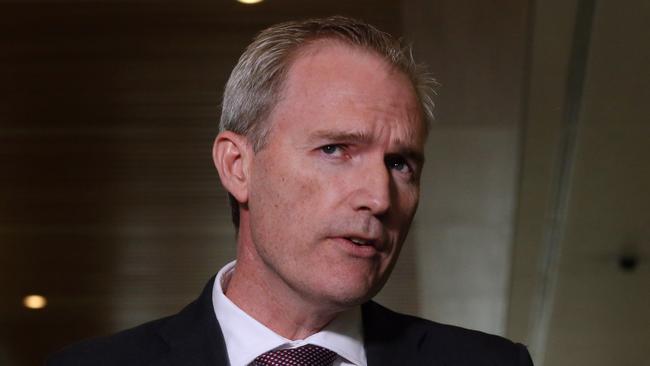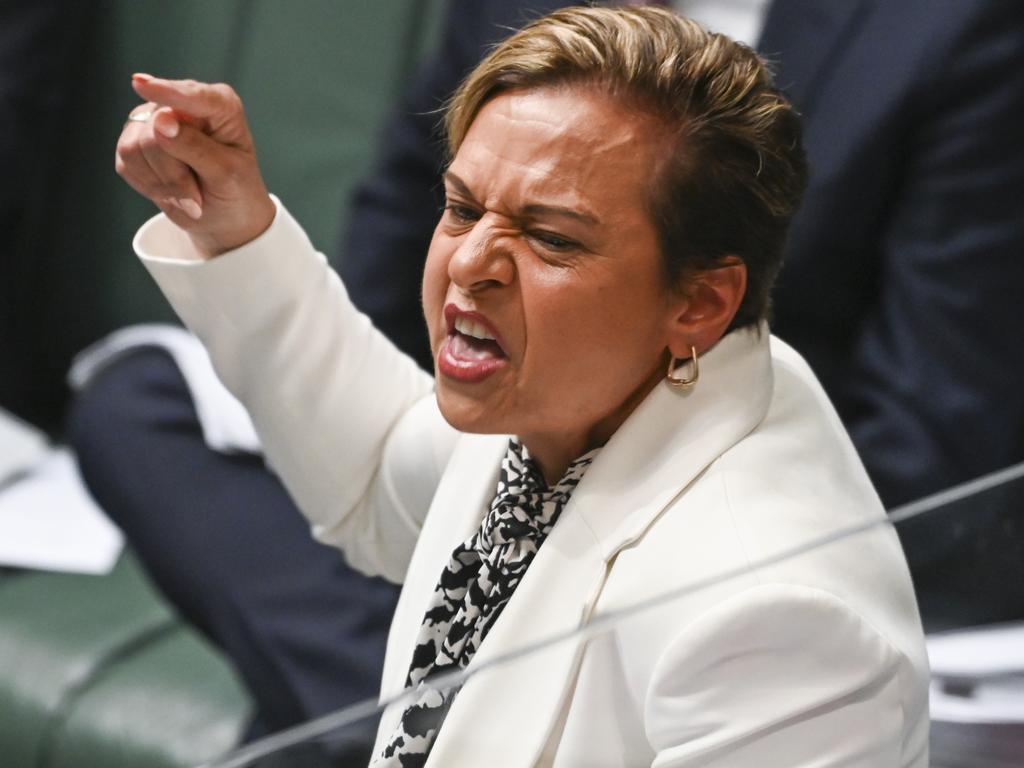Coalition, lawyers raise free speech concerns about Labor’s misinformation laws
The Coalition is likely to oppose Labor’s second attempt to legislate a crackdown on online misinformation and disinformation, amid criticism from legal experts that expanding the bill to include political content will undermine free speech.

The Coalition is likely to oppose Labor’s second attempt to legislate a crackdown on online misinformation and disinformation, amid criticism from legal experts that expanding the bill to include political content, including parliamentary debates, would undermine free speech.
Communication Minister Michelle Rowland tabled a revised version of the bill that would grant the media watchdog powers to force tech giants to tackle false content on their platforms on Thursday, which contains updated definitions of key terms including what constitutes “serious harm”.
The legislation retains a controversial measure allowing the minister to ask the Australian Communications and Media Authority to investigate online content unless it is from a “single end-user”, raising concerns that the legislation could be abused.
Ms Rowland said she would push for the legislation – which would fine tech giants that failed to control misinformation on their platforms – to pass parliament by the end of the year, and would refer the bill to be scrutinised by a committee of MPs.
“We know that some 75 per cent of Australians are concerned about the harmful impacts of mis and disinformation,” she told the ABC.
“This really goes to not only protecting Australians, but protecting our democratic way of life.”
Opposition communication spokesman David Coleman said the inclusion of the “extraordinary provision” granting the minister power to direct ACMA’s investigations raised significant concerns.
“We can see in black and white that the new bill allows the minister to personally order misinformation investigations,” he said.
“That is an extraordinary provision in a democracy. We will review this bill carefully – but we will always stand up for the free speech of ordinary Australians.”
Mr Coleman said he was also concerned about the inclusion of political and election content, including what MPs said in parliament.
“It appears that the bill captures parliamentary debates, meaning that digital sites would need to scour parliamentary speeches for potential misinformation,” he said.
“Minister Rowland needs to confirm whether or not this is the case.”
Victorian barrister and Voltaire Society president Peter A Clarke said the changes to the bill were the equivalent of putting “lipstick on a pig”, and expanding the legislation to capture political content was a change for the “worse”.
“Politics involves a lot of commentary and a lot of loose language, it doesn’t necessarily mean it’s disinformation or misinformation,” he told The Australian.
Mr Clarke said provisions in the legislation prohibiting content which was “reasonably verifiable” as false which caused “imminent harm to the Australian economy” was especially concerning, as well as provisions defining serious harm as “vilification” of protected groups.
“This is just a means of applying race hate legislation by stealth in this online setting,” he said.
“It is so broadly drawn, it seeks to basically create a speech code as to what is acceptable conversation regarding race, religion, sexual orientation, gender identity. Just take gender identity – the whole debate is swirling, and is changing all the time.”
Greens communications spokeswoman Sarah Hanson-Young said misinformation had been “supercharged” online and the party would be going through the bill “very carefully to make sure the balance is right”.
Barrister and university law lecturer Sophie York said it was a fraught path to attempt to distinguish between misinformation and views outside the mainstream, warning the legislation could “destroy your democracy from the backdoor”.
“Some things may turn out to be false, but also the government narrative may turn out to be false,” she said.







To join the conversation, please log in. Don't have an account? Register
Join the conversation, you are commenting as Logout